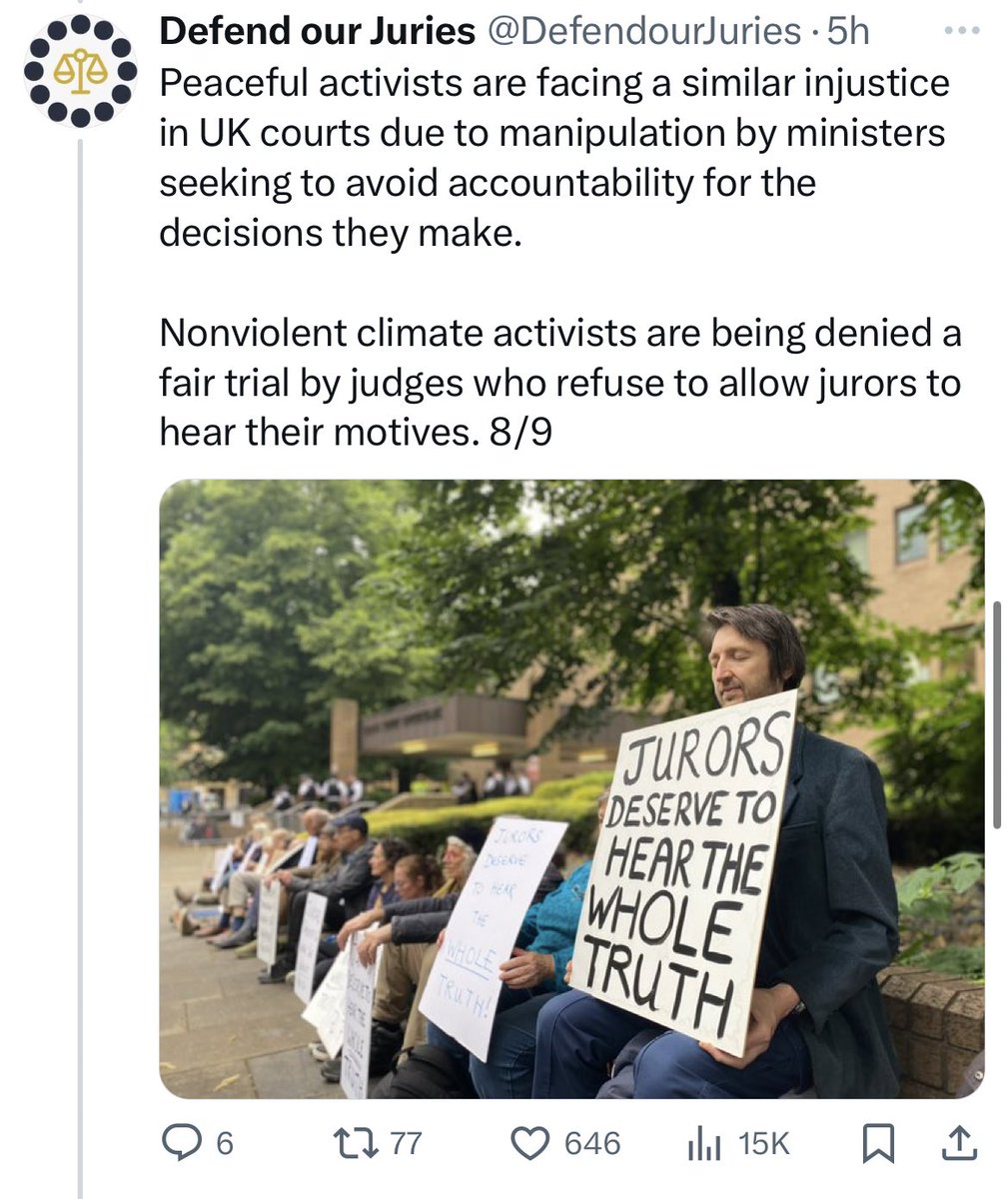Oh.
It. Is. On.
It. Is. On.
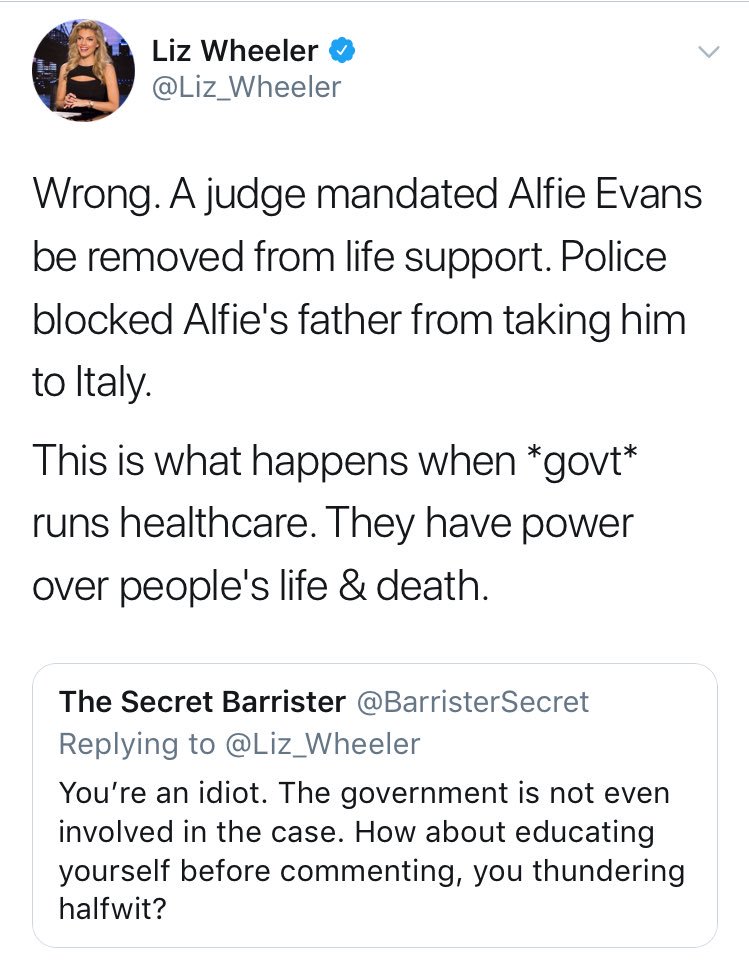
Well, @Liz_Wheeler, seeing as you’ve decided to pick a fight over English law with an English lawyer, let’s dance.
Start with the basics. Separation of powers:
Executive (government)
Legislative (Parliament)
Judiciary (courts)
All constitutionally separate. With me so far?
Start with the basics. Separation of powers:
Executive (government)
Legislative (Parliament)
Judiciary (courts)
All constitutionally separate. With me so far?
Here’s the judgment from the High Court judgment in February. You will note that the UK government is not a party to proceedings. We know that because the name of the relevant government minister (Secretary of State for Health), does not feature. judiciary.gov.uk/wp-content/upl… 
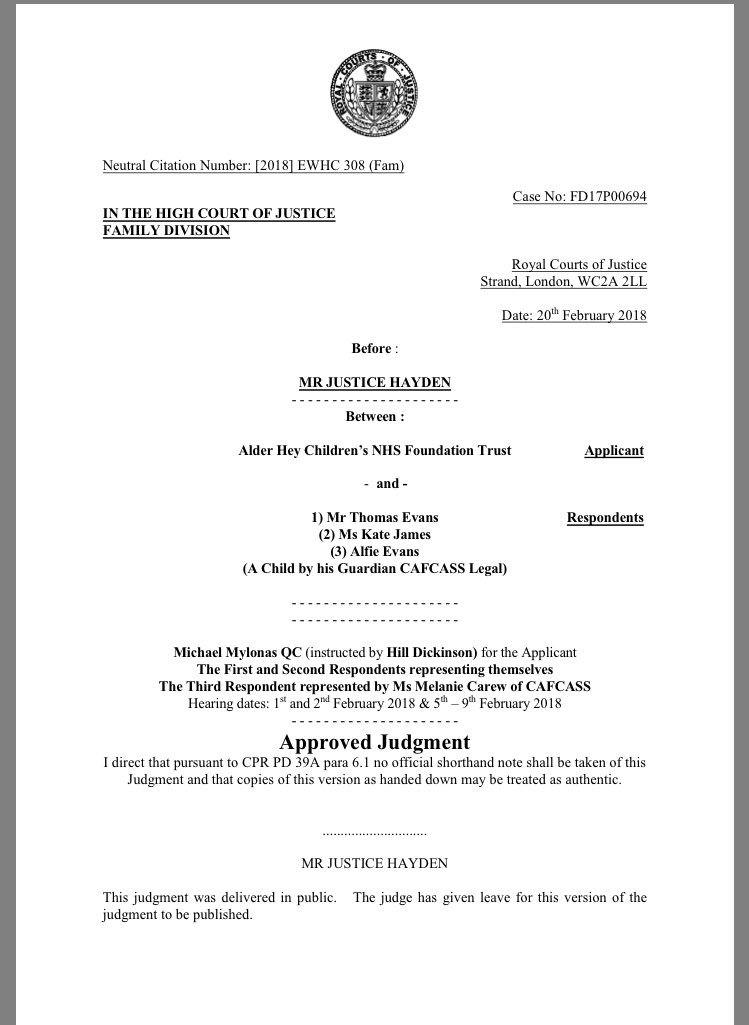
Rather, boiling this down to simple concepts that even you can understand, the legal dispute is between the doctors at the hospital and Alfie’s parents as to what is in Alfie’s “best interests”.
Stop me if I’m going too quickly for you. I can add illustrations if that helps.
Stop me if I’m going too quickly for you. I can add illustrations if that helps.
I won’t repeat the full medical evidence (you can read the judgment for yourself or ask a friend to help), but here is a summary of the uncontested medical conclusions.
From doctors. Not anyone in government.
From doctors. Not anyone in government.
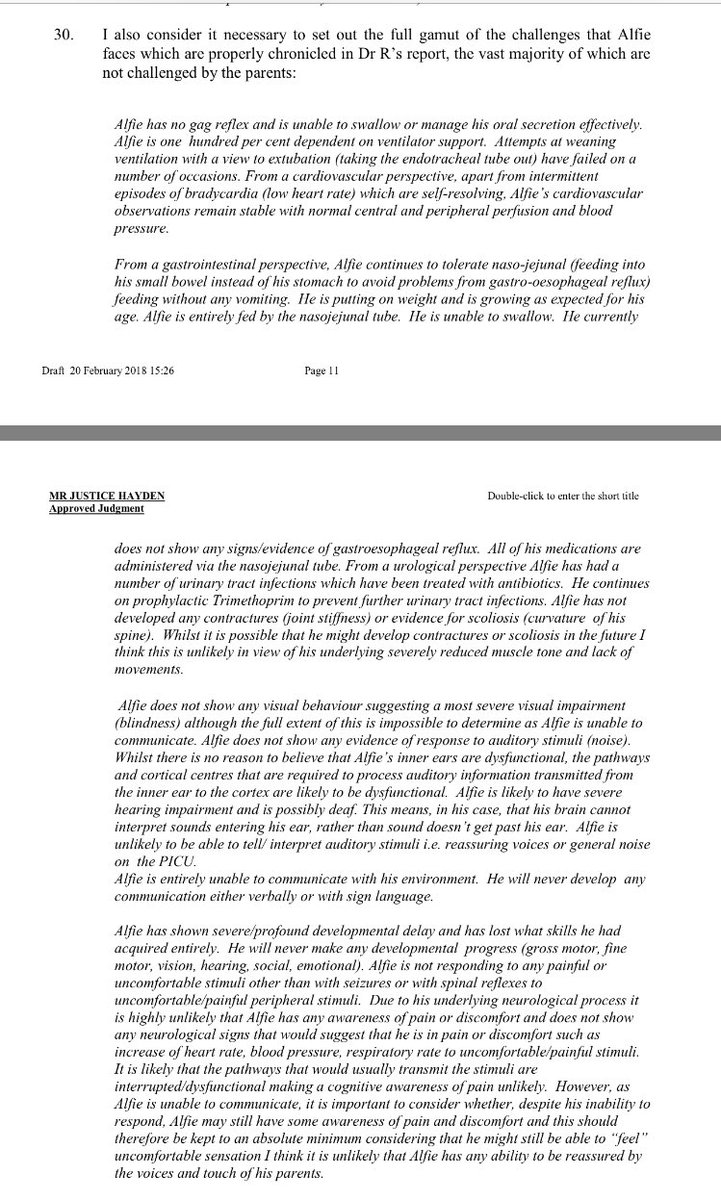
Here is the relevant legal test as to what constitutes a child’s “best interests”.
Please do jump in at any time to explain how, in your medico-legal expertise, the judge and/or experienced doctors have got this wrong.



Please do jump in at any time to explain how, in your medico-legal expertise, the judge and/or experienced doctors have got this wrong.
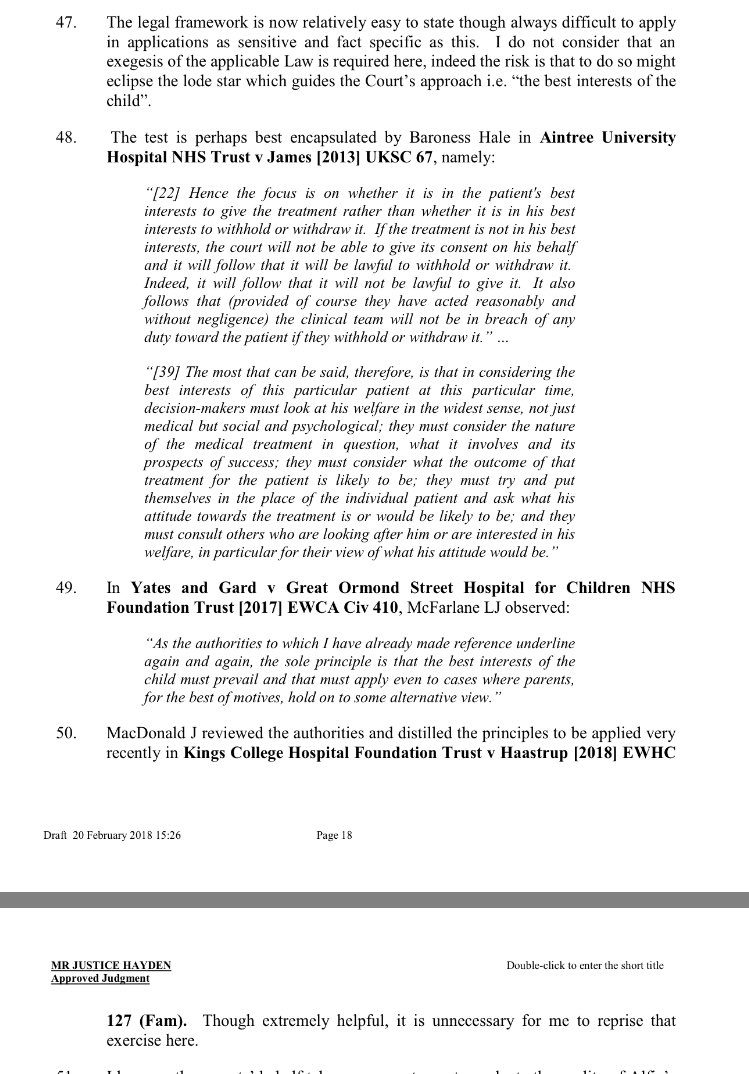
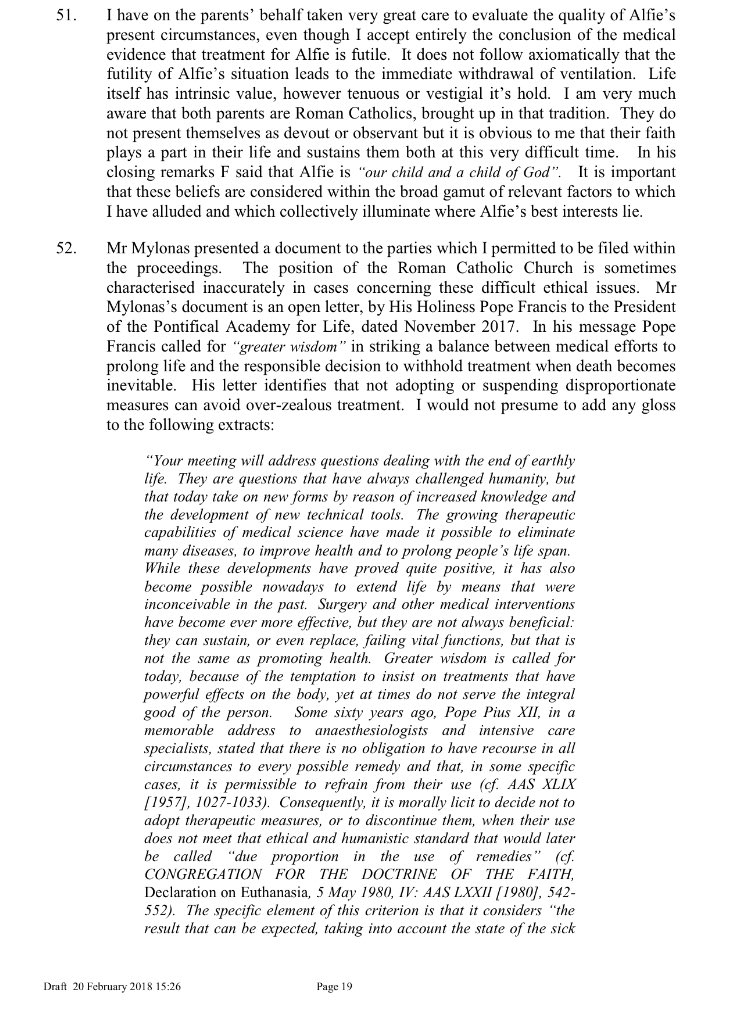
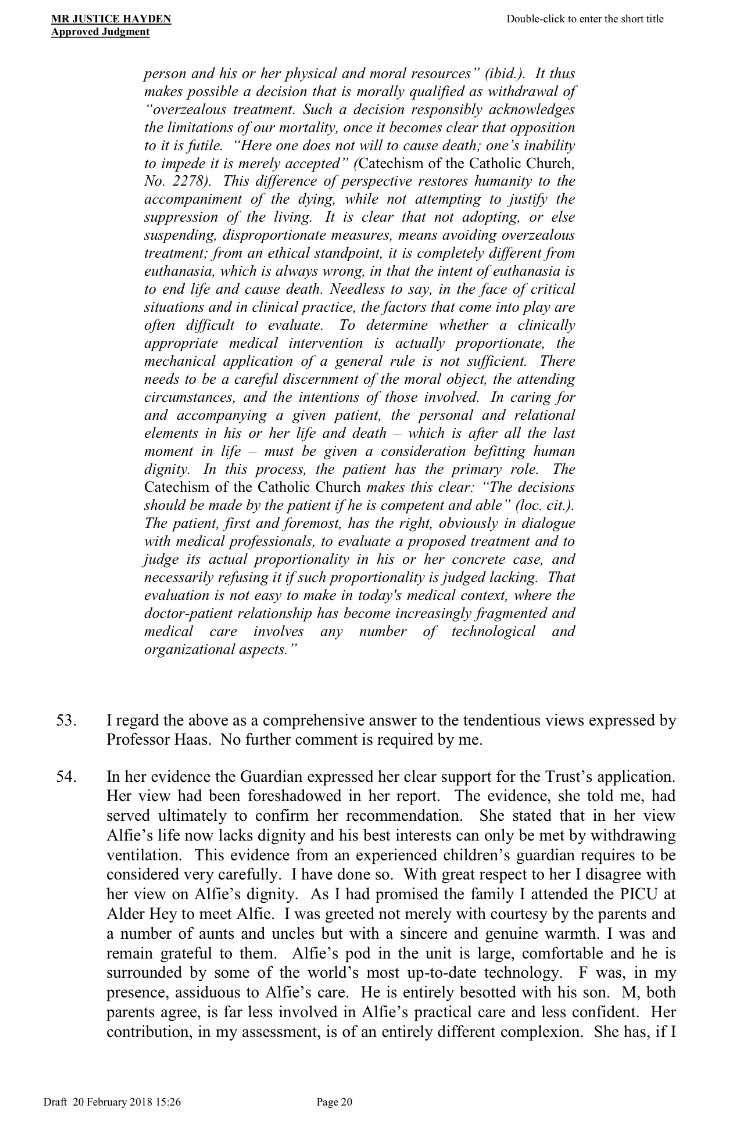
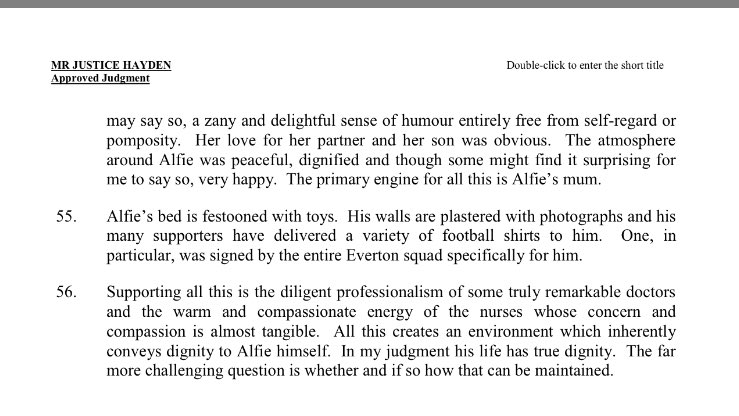
And here are the court’s (*not* the government’s) conclusions. Again, if your training as a lawyer/neurologist/paediatrician/lobotomised Trump fangirl compels you to reach to an alternative informed opinion, we’re all ears. 


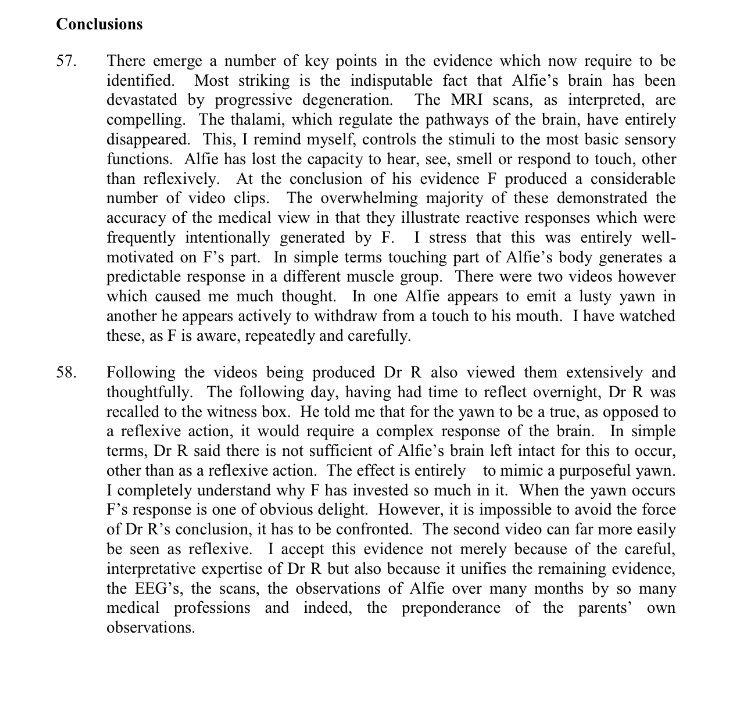
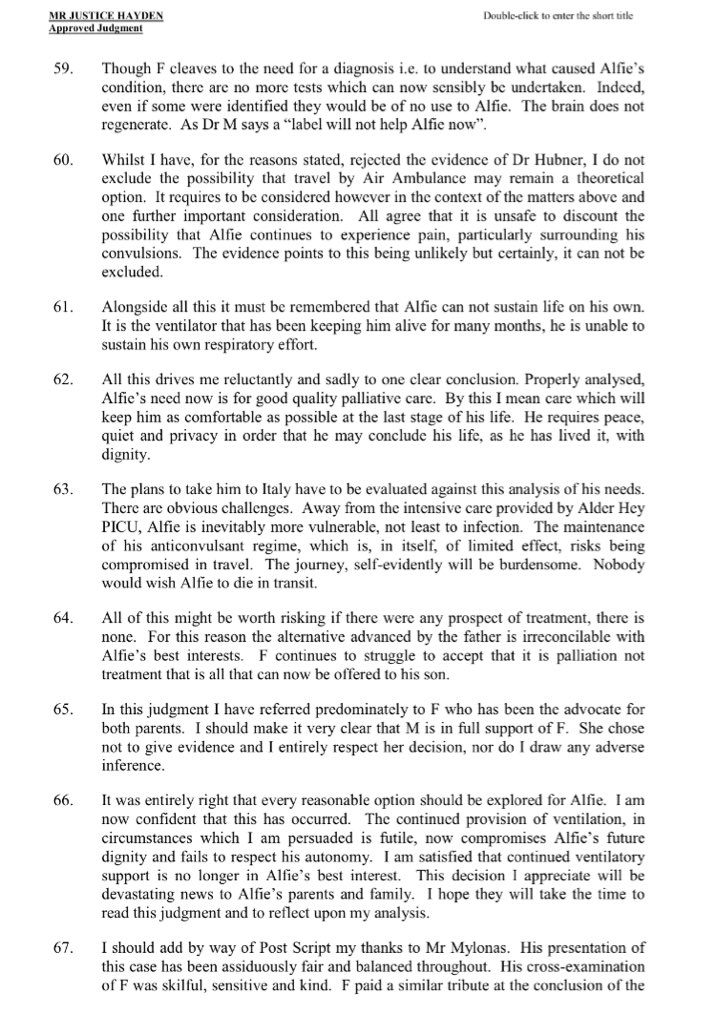
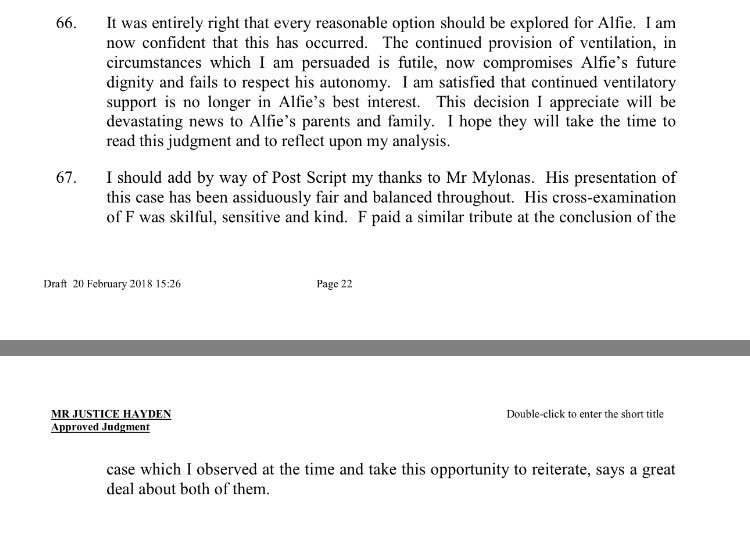
Now that, Liz, is the first judgment in the Family Division of the High Court. You will, I presume, have read all of the subsequent judgments as the case progressed through various layers of appeal. Here they are (helpfully collected by @davidjwood)
External Tweet loading...
If nothing shows, it may have been deleted
by @davidjwood view original on Twitter
Of particular interest may be the below paragraph from the Court of Appeal’s second judgment. It deals with the “legal advice” given by the Christian Legal Centre and spread across social media, which I suspect informs your opinions.
The “advice” was entirely bogus.
The “advice” was entirely bogus.

Other snippets from that judgment. The barrister acting for the parents submitted that the court should *not* consider Alfie’s best interests, but should subjugate them to the wishes of his parents.
The court described this as “startling”. That’s judge-speak for “batshit”.
The court described this as “startling”. That’s judge-speak for “batshit”.
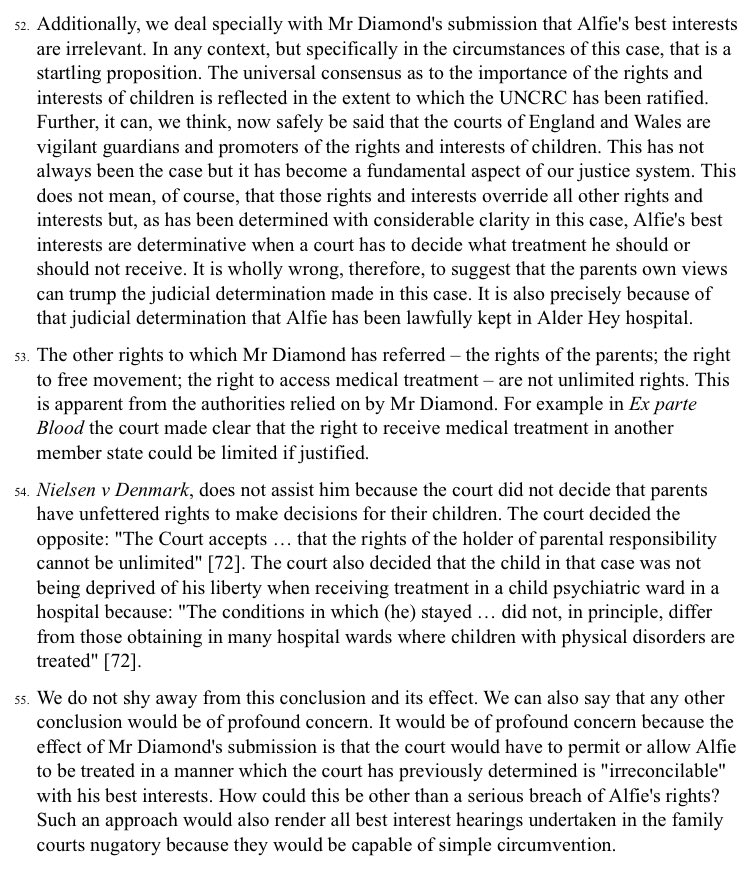
Addressing the issue as to whether Alfie should be taken to Italy, the medical evidence was clear.
I mean it, @Liz_Wheeler. Jump in at any point if I’m getting any of this wrong. You, after all, started this by correcting me on how English law works.
I mean it, @Liz_Wheeler. Jump in at any point if I’m getting any of this wrong. You, after all, started this by correcting me on how English law works.
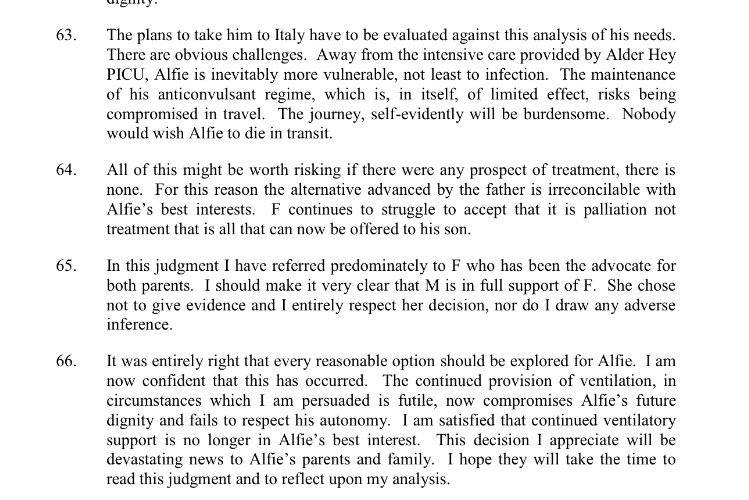
You will see, and must retweet to your followers, that the decision was based *entirely* on an assessment of Alfie’s best interests.
Not on “cost of treatment”. Nothing to do with “socialised medicine” or “death panels”.
Solely what is medically best for a very sick child.
Not on “cost of treatment”. Nothing to do with “socialised medicine” or “death panels”.
Solely what is medically best for a very sick child.
As I say @Liz_Wheeler, if you can read the judgments and explain where, medically, the experts are wrong, then you deserve a hearing.
If not, your opinion is worthless and you are monstrously self-publicising over a family’s most unimaginable tragedy.
If not, your opinion is worthless and you are monstrously self-publicising over a family’s most unimaginable tragedy.
So, to summarise:
- Government was not involved at all in the decision.
- Decision based solely on assessment of Alfie’s best interests
- Medical evidence overwhelming
- Christian fundamentalists lying about the law to exploit tragedy.
- Twitter idiots fuelling fire.
- Government was not involved at all in the decision.
- Decision based solely on assessment of Alfie’s best interests
- Medical evidence overwhelming
- Christian fundamentalists lying about the law to exploit tragedy.
- Twitter idiots fuelling fire.
If any of that is unclear, @Liz_Wheeler, please say and I will personally write it out in crayon and have it posted to you.
Have a nice day.
SB
Have a nice day.
SB
• • •
Missing some Tweet in this thread? You can try to
force a refresh





